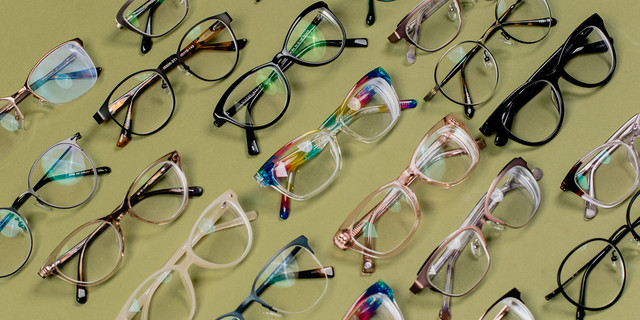Individuals with visual impairments who wear glasses are compelled to replace their lenses either every six months or annually. This is because of the necessity for vision correction and the occurrence of scratches or damage to the lenses. In contrast, frames are replaced much less frequently, usually due to malfunctions or the desire to acquire a more fashionable model.
The vast selection of off-the-shelf eyeglasses found in almost every store and even on street corners can be very tempting for those who need them. In fact, some readers of this article have made the decision to purchase ready-made glasses despite their initial doubts. The frames are visually appealing, the lenses offer good visibility, and perhaps most importantly, the price is quite attractive. With prices only in the few hundred rubles range (from street vendors), instead of several thousand rubles for custom-made glasses from an optical shop, is buying off-the-shelf glasses really such a bad idea?
Ready-made glasses: pros and cons
Ready-made glasses do have some advantages. They can be purchased in the case of an emergency, such as breaking or losing one’s glasses and not being able to wait for a custom order to be processed. Ready-made glasses provide a temporary solution in such situations, but they should only be worn for a short period of time, as ophthalmologists recommend not wearing them for more than 2-3 hours.
However, this is the only advantage of ready-made glasses. The standard lens power may not be suitable for everyone as the optical power of each lens can differ from 0.25 to 0.5 diopters. The interpupillary distance is also an important factor that varies among individuals.
Inexpensive ready-made glasses often come with low-quality lenses that lack multi-layer coatings. As a result, the optics quickly become unusable, easily scratched, highly glare, and have low light transmission. Additionally, individuals with high degrees of astigmatism may experience distortion at the edges of the lenses.
Wearing ready-made glasses with incorrect diopters, interpupillary distance, and without taking into account other features of visual impairment can lead to various symptoms, including eye strain, fatigue, irritation, redness, tearing, progression of eye disease, headaches, migraines, dizziness, and an increase in pressure. Some people may not realize that these symptoms can be associated with the use of cheap ready-made glasses. If these symptoms are observed, it is not recommended to wear ready-made glasses, especially since they cannot provide full vision correction.
Individual order
Putting one’s vision at risk by opting for cheap ready-made glasses is not worth saving some money. It is crucial to prioritize one’s vision over the cost and seek the help of an ophthalmologist to choose high-quality glasses with comfortable frames tailored to individual vision parameters. In case of an emergency replacement, many optics stores provide the “Glasses-in-an-hour” service.



